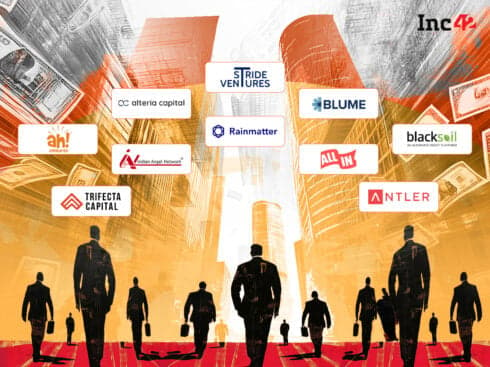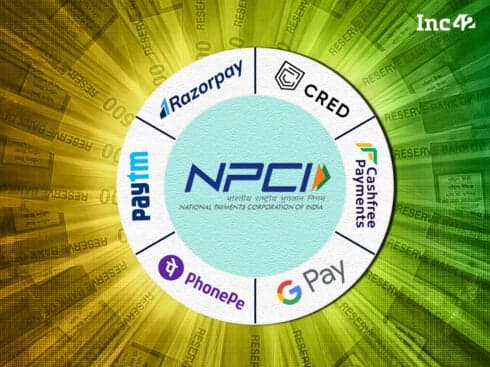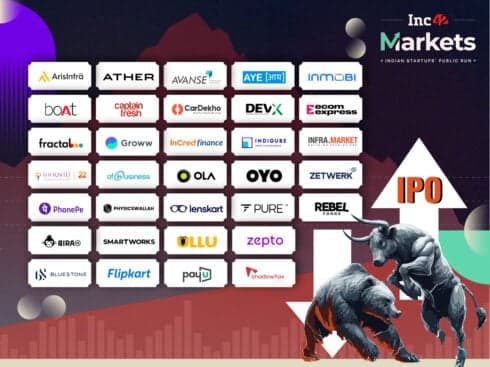Fashion offers the biggest opportunity among all D2C segments, and this has brought about an explosion of D2C fashion brands in India
We are pretty sure you’ve been scouring the internet for the best deals and the trendiest outfits this past festive season. One thing that you might have noticed is the sheer number of Indian D2C fashion brands that are popping up with each passing month.
So this week, we are taking a look at the state of India’s D2C fashion market — arguably, the biggest among all D2C categories — and how it has changed in the past 18 months in the wake of the pandemic. Before that, here are two stories that you should check out:
- ?️IPO-bound Pepperfry has raised $40 Mn to expand its franchise model with a renewed focus on modular furniture and the mattress segment
- ?The rise of D2C and an unprecedented boom in online shopping means the Indian ecommerce market is estimated to be a $200 Bn opportunity by 2026. Find out more in our special report.
?India’s D2C Fashion Brands In Vogue
Arguably, the biggest advantage of the D2C model is the flexibility it affords companies to tap into the latest trends with new brands, products and private labels. And no category epitomises this more than fashion.
The fashion D2C segment is not only leading in terms of potential but also attracting the most investor interest. It has raised the highest funding of $756 Mn among all D2C segments in India (as of April 2021), and the boom has brought in hundreds of brands to the market.
?️The Market: Fashion has been a difficult nut to crack for startups due to an abundance of unorganised supply and the massive scale of the incumbents, but the discretionary spending on fashion is higher than most other D2C categories. The competition in the D2C fashion arena has grown exponentially over the past couple of years. Besides big name brands and the private labels of Myntra, Ajio and Amazon, the Indian market features several D2C startups in the casual wear, Indian wear, innerwear and activewear segments.
?The Fashionistas: Thanks to the combination of an evolved consumer base, the greater exposure for fashion trends such as sustainability and conscious design, and a penchant for experiments, we have an explosion of D2C fashion brands.
These include Bewakoof, StyleCracker, Chumbak, Azani, Anouk, Fable Street, The Souled Store, Wrogn, FabAlley, Zivame, Clovia, Damench, XYXX, Pretty Secrets, Almo Man, Bombay Shirt Company, Andamen among others. And with each passing week and month, more brands are joining the race, particularly as fashion commerce goes social and creates new models.
Unlike 2020, when there was too much uncertainty about consumer spending during the late-year festive season, brands are more confident about 2021 and have rolled out big campaigns to attract consumers. Newer marketplaces such as CRED have also emerged to join the likes of Ajio and Myntra, bringing a sharper focus on D2C brands. Bewakoof, for example, allocated 15% of its total marketing budget in 2021 for the October-December quarter to boost sales.
?Fashion Goes Social: With so many brands competing in the market, and new ones coming in every other month, startups have been looking to set themselves apart in the way they sell.
From AR & VR to live or social commerce, D2C brands have looked to stand out with a range of strategies, and this has evolved with the wider internet ecosystem. But what matters most is the quick and efficient implementation of such solutions, with an eye on customisation.
Bewakoof, FabAlley and others are leveraging AI-powered recommendation and product development engines to create new designs that best meet the customer’s needs. Community-building is another major facet of fashion commerce which is evident in the large Instagram followings for these brands.
“Shopping has always been a social thing to do. When we think of shopping, we think of going out with family and friends and having a good time. So, digitally native brands need to incentivise group shopping to compete with the offline experience,” Bewakoof founder and CEO Prabhkiran Singh said.
?Omnichannel Matters: When it comes to fashion though, the way you sell is also guided by what you sell. These days omnichannel (retail + marketplace + native) is the preferred mode for most brands. It makes sense as it reduces the customer acquisition cost and increases reach for these brands.
For example in the underwear and lingerie segment, omnichannel has long been the way to go, as brick-and-mortar shops were a big touchpoint for consumers. But as online marketplaces expand their reach and target costumes in Tier 2/3/4 cities, the likes of Zivame, Clovia, Damensch, and others have seen their addressable base widen rapidly.
?The Big Question: Will omnichannel remain the chief go-to-market strategy in 2022?
Analysts believe that the tremendous strain on the retail channel in 2020 will prompt higher spending towards online channels, and reutilisation of retail assets for fulfilment and warehousing. Brands that have invested heavily in retail might have to shed their dependency on this channel going ahead.
?Beyond Apparel: While clothing and apparel are the biggest sub-segments within fashion, the actual potential for D2C brands to disrupt this space is vast when we include the wider world of accessories, eyewear, footwear and other elements. Here’s a look at the vast market and the fashion D2C players in India.
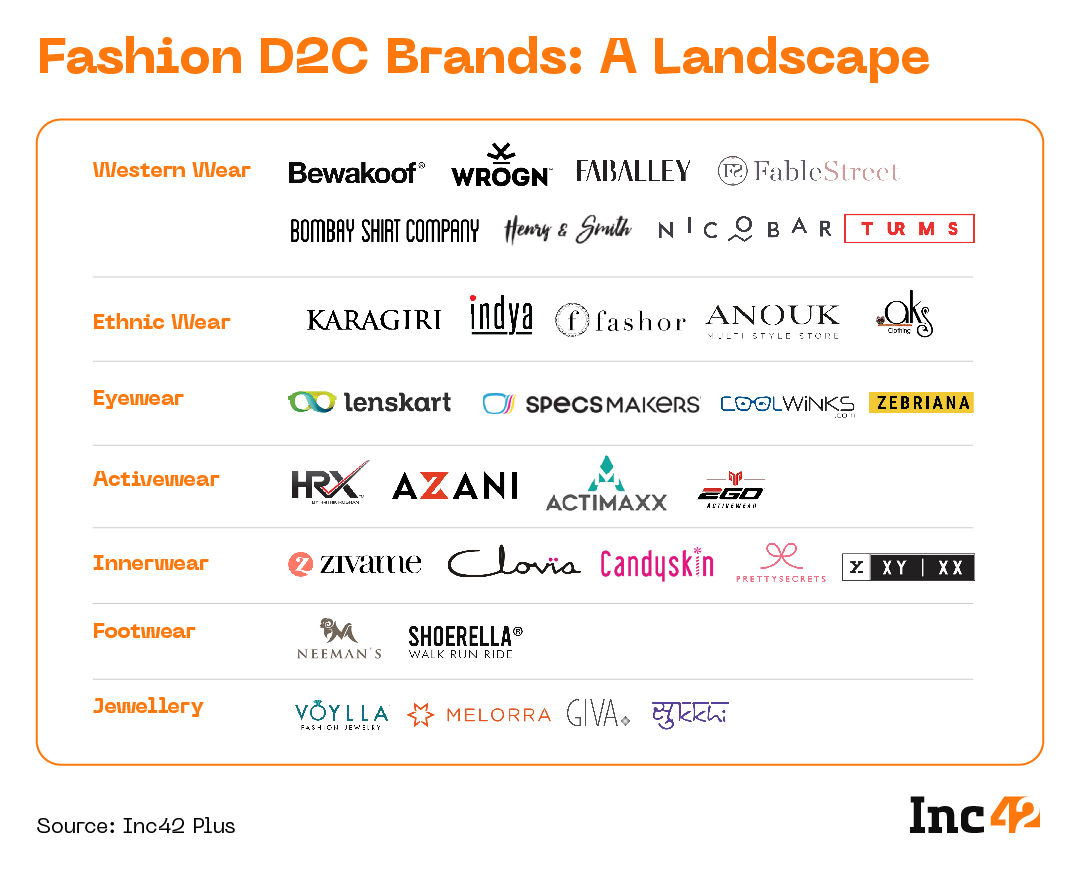
D2C Discovery: Awshad 
Amazon India is among the headlines these days for alleged marijuana sales, but India’s connection to cannabis stretches all the way back to 2000 BCE and vedic texts. It’s no surprise then that hemp startups such as Awshad are reviving the practice of cannabis-based pills, oils, edibles and tinctures.
The Delhi-based startup is among a slew of startups that are looking to bring cannabis and hemp-based products to the Indian market.
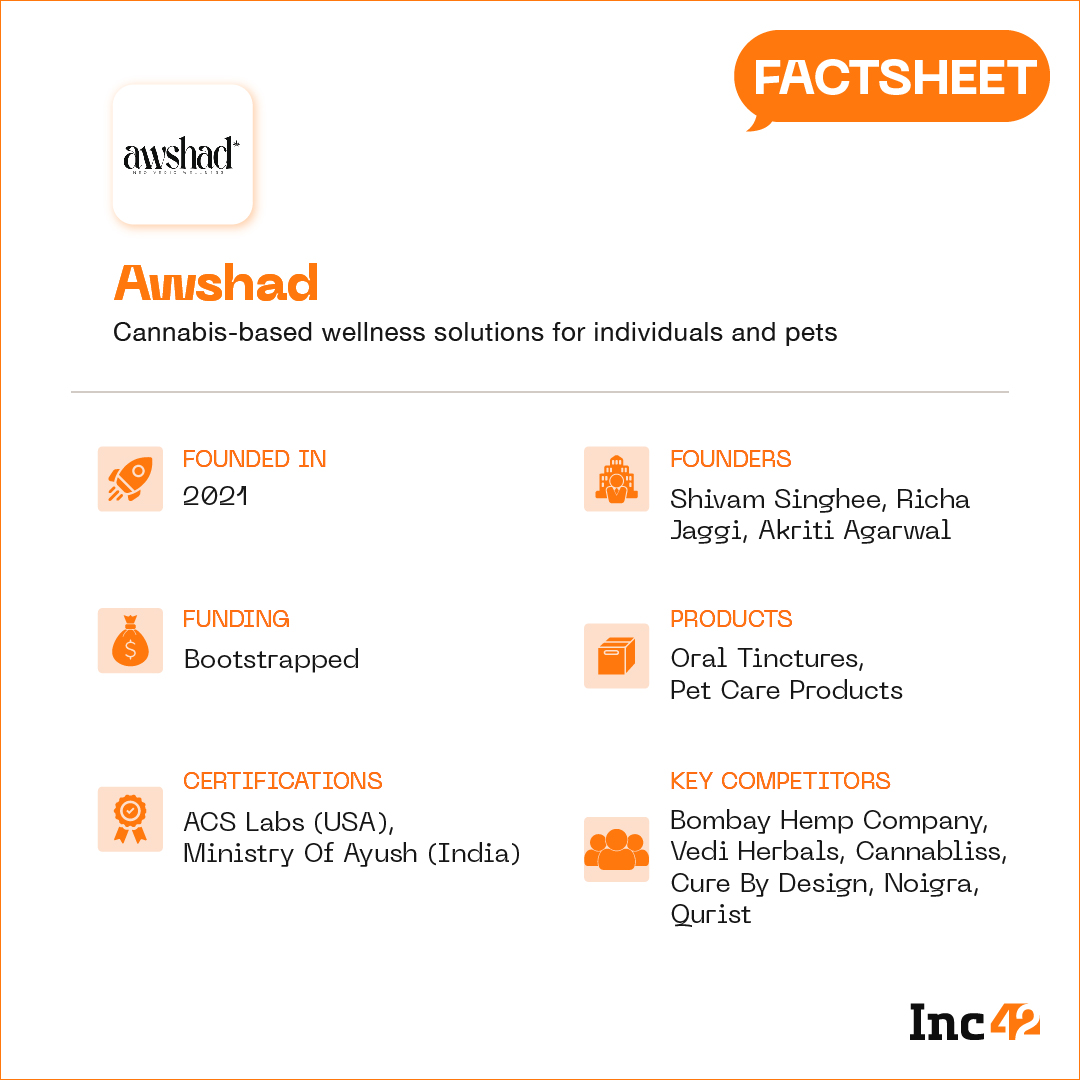
?The Opportunity: The startup is among a dozen companies in India looking to carve a niche in the medicinal cannabis products segment.
In 2019, India was the second largest exporter of cannabis oils with $320.8 Mn (11.1% share of global exports) in revenue. Recent high-profile controversies around recreational marijuana use have revived the debate about decriminalisation of personal marijuana use, which would be a massive boost to this industry.
?The Products: Awshad develops vegan and gluten-free full-spectrum CBD products in the form of tinctures or oils for pain management and treatment of lifestyle ailments such as stress, anxiety, sleep disorders, epilepsy among others.
The startup began with a full-spectrum ‘Vijaya Oil’ in the form of oral tinctures, which can be purchased with a medical prescription provided by Awshad’s partner doctors. Further, its products are certified in the United States, and are licensed under the Indian government’s Ministry of Ayush.
?What’s Next: After launching its pet care product, Awshad is currently developing a range of CBD-based topical application products such as pain relief oils and salves, balms for muscle and joint pains, which will be launched by next month.
Note: Cannabis consumption is banned in India, but commercial cultivation of hemp and cannabis and consumption of specific cannabis-derived ingredients for medicinal purposes is legal in certain states such as Odisha, Uttarakhand, Himachal Pradesh and others.
One Week To Go For India’s Largest D2C & Ecommerce Conference
Ready to meet India’s fastest growing D2C brands at The D2C Summit next week? Over 5000 attendees have registered and you can join them too. Register now and make the most of India’s D2C rush!
D2C Buzz This Week
- ?Joining The 10club! The Thrasio-style platform has acquired gardening startups Kraftseeds, Gate Garden and Kriti Kalash to launch its ‘Home’ category
- ?Purplle Patch! The beauty products marketplace is raising another $49 Mn following its $75 Mn fundraise last month
- ?UpScalio Rolls On! The roll-up platform has marked its fourth acquisition with home appliances startup Hestia
- ?Biryani Boom! Cloud kitchen brand Biryani By Kilo has raised $35 Mn to expand within India and internationally
- ?Growth Spurt! Home gardening startup Ugaoo has raised INR 15 Cr in its Pre-Series A round to expand within India and launch new products
- ?Butter Up! Join Ventures plans to invest $7 Mn in ‘indulgent’ food brand Masqa
Caffeine Buzz: Delhi-based Sleepy Owl Coffee has raised $6.5 Mn in its Series A round to deepen its retail presence
Catch us again next week for yet another fresh take on India’s D2C rush and the latest developments!




 Fintech
Fintech Travel Tech
Travel Tech Electric Vehicle
Electric Vehicle Health Tech
Health Tech Edtech
Edtech IT
IT Logistics
Logistics Retail
Retail Ecommerce
Ecommerce Startup Ecosystem
Startup Ecosystem Enterprise Tech
Enterprise Tech Clean Tech
Clean Tech Consumer Internet
Consumer Internet Agritech
Agritech









